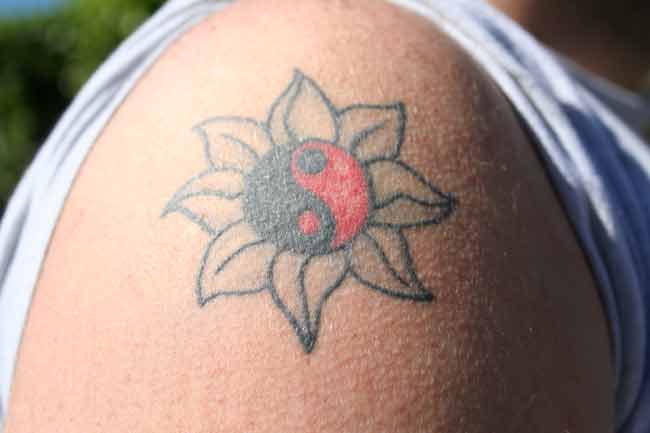Tattoos Less Sensitive to Touch

That tattoo you decided to get in college may look cool, but it might also be decreasing your skin’s sensitivity to touch.
University of Northern Colorado psychologist Todd Allen tested 21 undergraduates who had gotten tattoos within the last couple years, most commonly on their lower back for females and upper arm for males, and found tattooed areas were less sensitive than matching non-tattooed areas.
Allen tested sensitivity with an aesthesiometer—a sort of caliper with two plastic points. The points were gradually moved closer together on the skin until the person could only feel one point of pressure instead of two. Tattooed individuals felt this point sooner on their tattoo than on the same part of the corresponding non-tattooed body part.
Allen told LiveScience he sees three possible explanations for the change in sensitivity, all of which he said are difficult to test.
One possibility is that the tattoo ink disrupts the transmission of pressure from the surface of the skin to receptors deep in the skin.
Another is that the tattoo gun could over-activate the receptors so that they become less sensitive.
The third, and least likely possibility to Allen, is that “somehow the tattooing process has just damaged or killed the receptors in the skin.". This possibility is unlikely because these receptors generally grow back when damaged, he explained.
Sign up for the Live Science daily newsletter now
Get the world’s most fascinating discoveries delivered straight to your inbox.
To test the third possibility, researchers would have to look at a tattooed cadaver and stain the nerve endings under the tattoo to see if they were damaged.
The decrease in sensitivity doesn’t hinder tattooed individuals, mostly because tattoos aren’t in places that require sensitivity. “It’s not a big deal in reality,” Allen said.
Allen would like to explore whether the number or size of tattoos further affects sensitivity.
- New Material is Sensitive Like Human Skin
- How Many Senses Do Humans Have?
- A Woman's Skin Ages Faster
- Printable Skin: 'Inkjet' Breakthrough Makes Human Tissue

Andrea Thompson is an associate editor at Scientific American, where she covers sustainability, energy and the environment. Prior to that, she was a senior writer covering climate science at Climate Central and a reporter and editor at Live Science, where she primarily covered Earth science and the environment. She holds a graduate degree in science health and environmental reporting from New York University, as well as a bachelor of science and and masters of science in atmospheric chemistry from the Georgia Institute of Technology.









